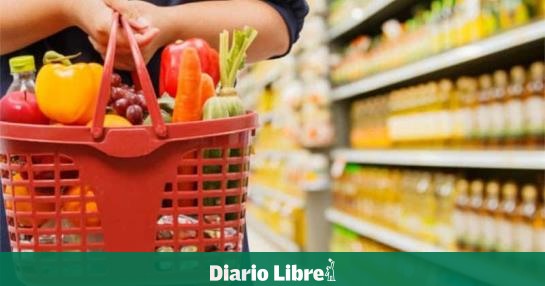The provisional bill on the application of the zero tariff rate to a list of 67 products of the basic family basket of the Dominican Republic, would not meet its objective of reducing the price of these products in the country, according to the study carried out by the Dominican Political Observatory (OPD).
The document indicates that, if the Government decides to influence the tariff, a decrease in prices can be assumed; however, several of these products are already in free trade, so a truly significant difference is not expected.
The study of the entity attached to the Global Foundation for Democracy and Development (funglode), explains that the little impact is mainly due to the fact that through the DR-Cafta agreement, the Dominican Republic already imports various products with tariffs zero ratesuch as bacon, chicken offal, turkey meat, sugar, peanuts, liquid and powdered milk, butter, ice cream, cheese, among others.
In addition, it indicates that to date the existence of investigations in the country that demonstrate that the current inflation crisis is caused by a monopoly in the markets is unknown.
“What is evident is that it is rather an inflation of a monetary nature, whose causes are largely caused by the high cost of inputs”, indicates the study “Zero-rate tariff proposal: a measure that should be reconsidered“.
He warns that eliminating tariffs on the 67 proposed products could contribute to a significant decrease in national agricultural productionbecause entrepreneurs will be encouraged to import the products and not buy them in the Dominican Republic.
Consequently, he points out, producers could stop producing, which will have a negative impact on the country’s food security.
The research authored by Greidys Joel Roa Chalas, coordinator of the Public Policy Unit of the OPD, and Lisleyda Martínez, associate researcher, recommends that this proposed measure of the bill be rethought so that the zero tariff rate is approved rather for the inputs of national agricultural production, which would reduce the cost of agricultural production.
The report adds that a zero tariff rate for national agricultural products would also allow food prices to decrease, achieving two results with only one action: raising the purchasing power of households and strengthening national production to guarantee food security of the country.
The study specifies that, of the 67 products proposed in the piece of legislation, 54 are mainly imported through the DR-Cafta; 59% come mainly from the United States, while 14 and 15% come from European countries and Costa Rica, respectively. Also, 6% comes from Nicaragua; 4% from the rest of the Latin American countries and 2% from Asia.
Through the study it is explained that, from a certain point of view, the position of the Government to protect the local consumer is understandable; however, eliminating tariffs on these products would ensure a reduction in the productive dynamics for agricultural producers, production companies and agro-industries, among other suppliers of inputs and services, mainly due to the fact that importing products at a lower cost than that of local production would cause a decrease in the sales of local producers and would discourage them.
In addition, in the medium term the country would face a decrease in its productive apparatus and monetary losses. Added to this is the downward trend in the growth rate of the sector recorded over the last six years: from 8.6% in 2016 to 2.8% in 2021.








